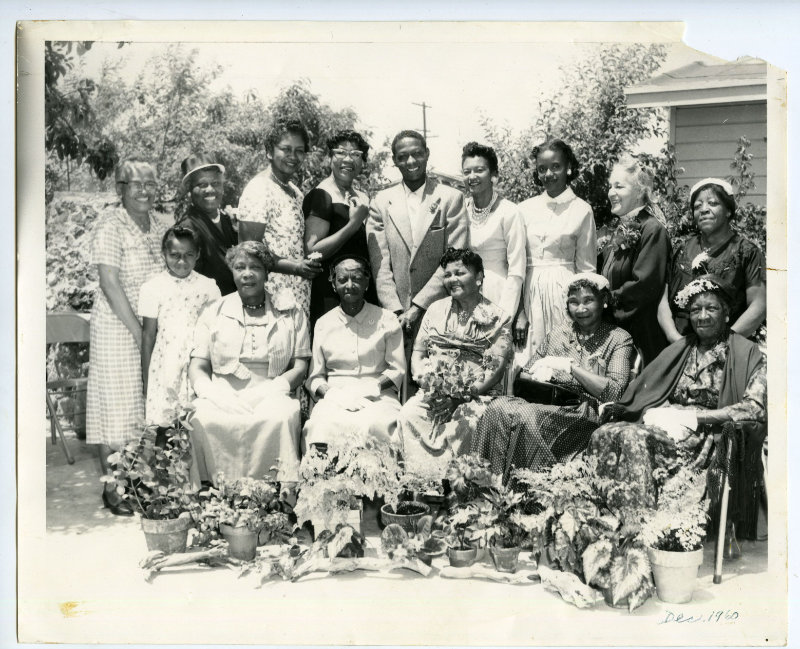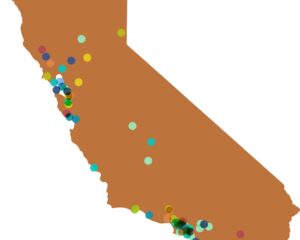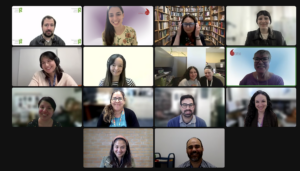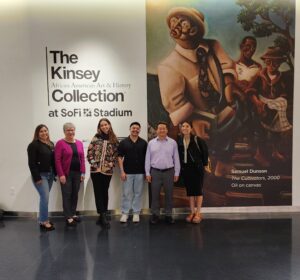Above: Members of the Carver Garden Club, Oakland, Dec. 2, 1960. African American Museum & Library at Oakland Photograph Collection.
In recognition of California’s African American and African diasporic communities, this post highlights the work of recent Humanities for All Program grant projects that have explored and celebrated the richness and complexity of Black life in California.
Black Mariners of the Black Pacific: Reimagining Race, Migration, and Diaspora*
California Institute for Rural Studies Inc, Santa Cruz
Project Director: Caroline Collins
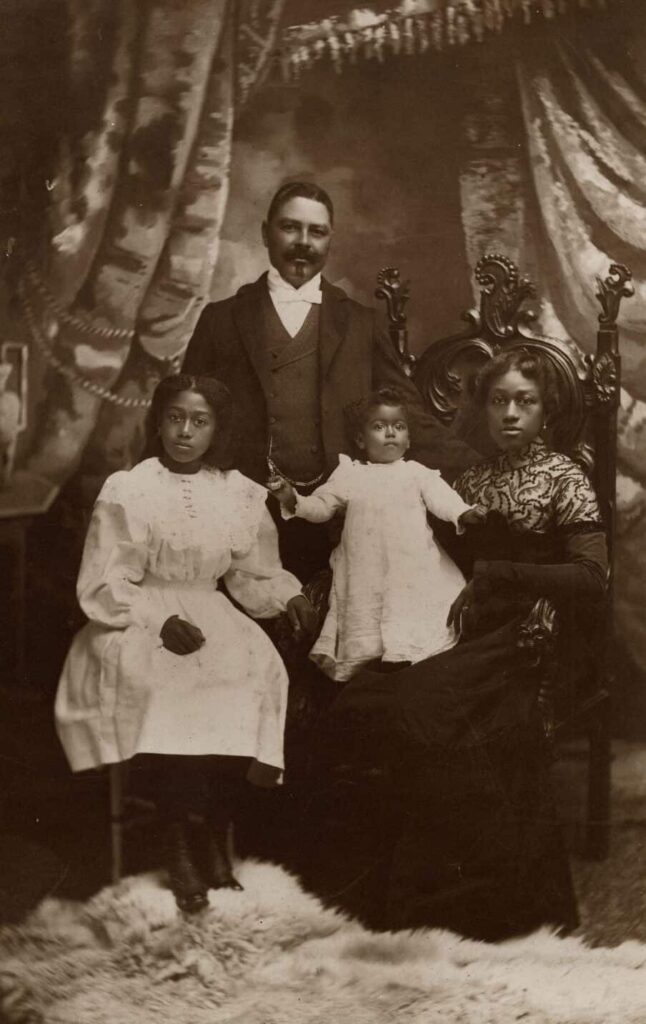
Black Mariners of the Black Pacific: Reimagining Race, Migration, and Diaspora examines 16th – mid-20th century maritime practices of people of African descent including whalers, commercial mariners, fishers, explorers, soldiers, and sailors who settled along the Pacific Coast of what is now the United States. This new public humanities project employs formats including a traveling exhibit, small vessel construction, and short documentary film in the service of investigating a less explored oceanography—the Pacific Ocean—to extend our understanding of the origins of Black people in America and the essential nature of the roles they played in the maritime enterprise and American genesis. Target participants of the boat build workshop include Black and Indigenous (including Black Indigenous) youth and university students. Anticipated program audiences are African American and Indigenous individuals and communities, interested residents within the geographic areas of inquiry, students and educators, maritime enthusiasts, and military personnel. Project goals include inviting participants and audiences alike to reimagine Black peoples’ relationships to water and watercraft beyond the trans-Atlantic slave ship and to engender a recognition that Black people not only existed in the Pacific region but served as integral actors in the development of the Pacific economy and society.
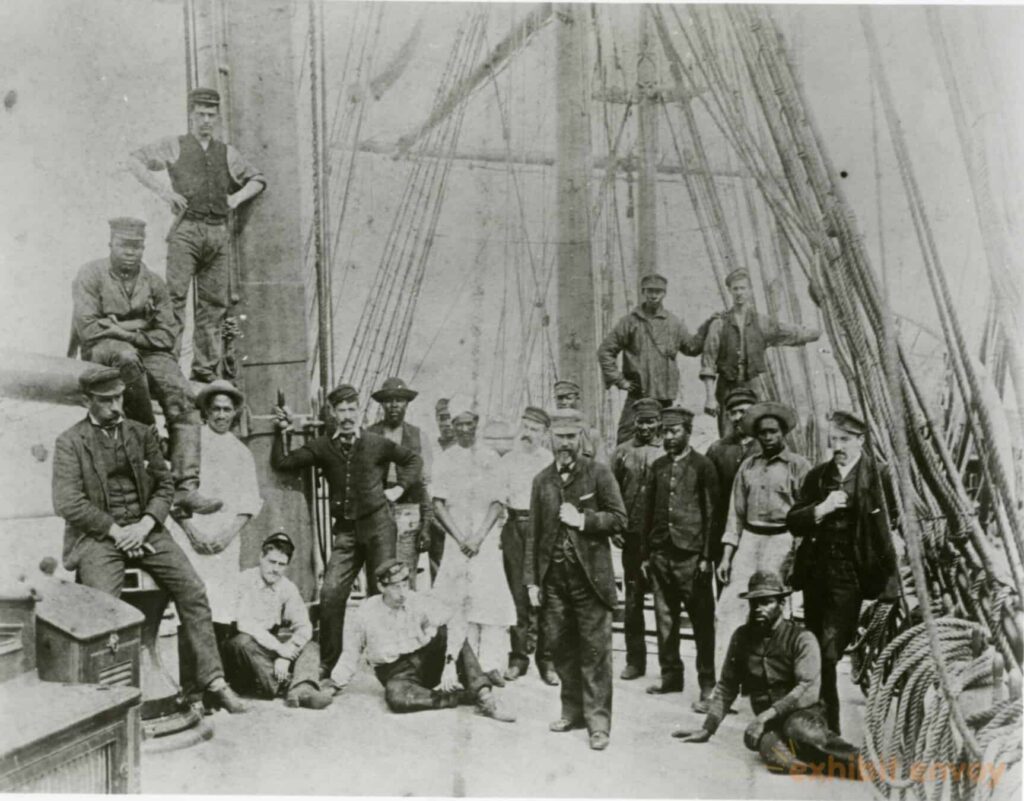
*YOUTH VOICES
California Humanities supports humanities programming that will reach and engage the next generation. These projects involve teens as primary program participants or audiences and address topics or subjects of interest to them (denoted by “*”).
We Are Not Strangers Here: A Cal Ag Roots Story Series
California Institute for Rural Studies, Inc. Davis
Project Director: Ildi Carlisle-Cummins
We Are Not Strangers Here shines a light on African Americans in the history of California agriculture and rural communities and Black people’s relationship with food, farming and land. The third of the Cal Ag Roots story series, this project has three main elements: podcast audio stories which will be posted on a digital Story Hub accompanied by text and archival visual materials, a live storytelling event at the African American Museum and Library at Oakland and a Story Listening Booth—a traveling exhibition which will include archival materials and audio files from the podcast series evoking the agrarian experience of African Americans in California. The project, starting in 2019 and continuing to the present-day, is a collaboration between the Cal Ag Roots Project at the California Institute for Rural Studies, the African American Museum and Library at Oakland, Exhibit Envoy and three rural museum and library partners in the Central Valley who are continuing to host the exhibit and related public programs.
Listen to a trailer for the podcast and listen to the full series here.
Check out the traveling exhibition, now on view at the San Joaquin County Historical Museum from January 29-April 2, 2023
Regeneration: Black Cinema 1898-1971 film screenings, public programming, and symposium
Academy Foundation, on behalf of the Academy Museum of Motion Pictures, Beverly Hills
Project Director: Dawn Mori
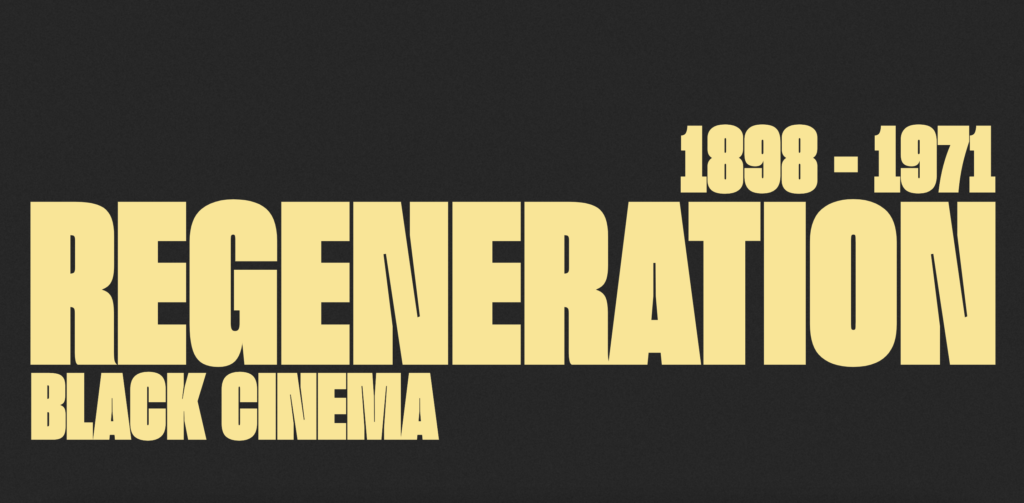
The recently inaugurated Academy Museum of Motion Pictures presented its second temporary exhibition, Regeneration: Black Cinema 1898-1971, a research-driven, in-depth look at Black participation in American filmmaking, which opened in August 2022. This ambitious exhibition explored the visual culture of Black cinema in its manifold expressions, from its early days at the beginning of the 20th century to the civil rights movement of the 1960s, highlighting the work of independent African American filmmakers and its relationship with other visual artists. The exhibit accompanied screenings of recently restored “race films” and other related titles, and a full slate of public programming. Regeneration was co-organized by Doris Berger, vice president of curatorial affairs, Academy Museum, and Rhea L. Combs, director of curatorial affairs, National Portrait Gallery. The project aimed to help redefine U.S. film history by elevating this underrepresented aspect of artistic production and present a more inclusive story about American film history.
Browse the project website for timelines, maps, film & filmmaker database, and other interactives.

